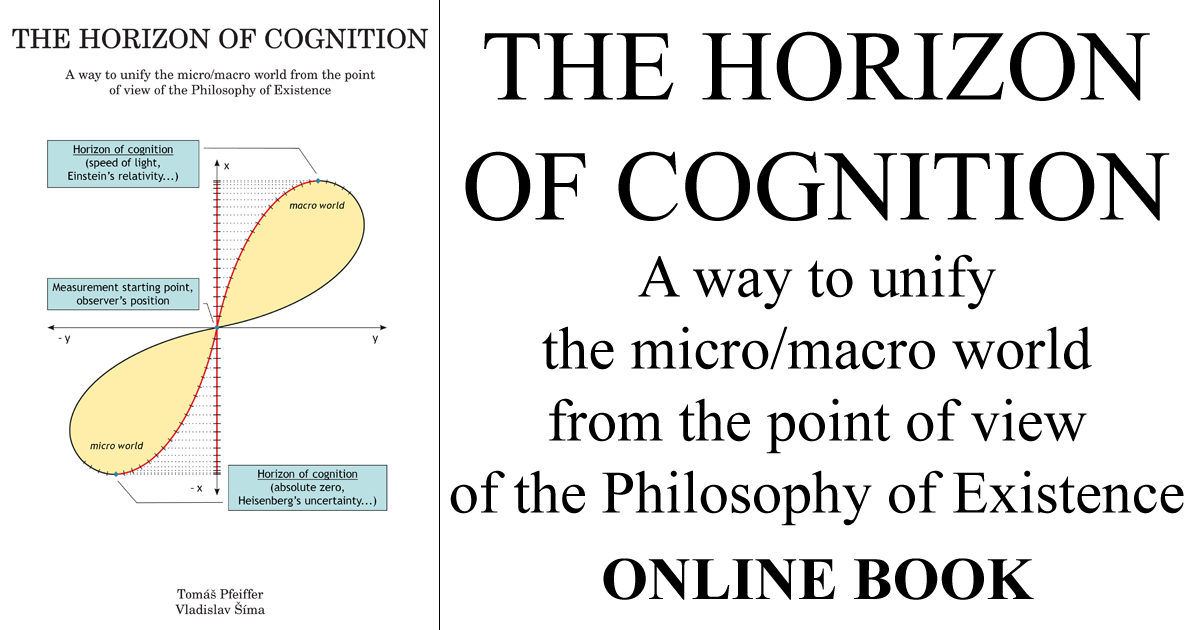Chapter 6
Conclusion
Contemporary scientific theories describing the micro and macro world seem to be incompatible. Yet philosophical knowledge explains that they all in fact describe the same thing and that the only real difference is the observer’s position.While the theory of relativity works with 100 per cent predictability and certainty, quantum theory is purely probabilistic. From our perspective, we consider the force of gravity as negligible in the micro world while gravity plays a fundamental part in space.
An observer in the micro world sees an object in “his” scale and finds it completely and clearly defined, exhibiting fully predictable relativistic behaviour, whereas an observer in the macro world only perceives oscillating spacetime projections of points, which manifest themselves to him as waves. An observer in the macro world measures tiny values of dimensions, time and mass, whereas to an observer in the micro world the measurements show many billion. In the macro world astronomers observe the explosions of huge supernovas, while in the micro world we detect the spontaneous decay of heavy atomic nuclei. Just as we observe molecules in the micro world, we can find binary or multiple star systems in the macro world.
And yet they are in fact just two views of the same thing.
The ideas in this book thus invite us to consider the possibility of changing the paradigm regarding our contemporary understanding of the world. If we apply the horizon of cognition to objects in its vicinity, we can reach a deeper (albeit not full) understanding and clarification of not only cosmology and quantum mechanics but also our entire world.
It may seem that some of the ideas presented here are hardly provable based on our current knowledge of the world. However, their foundation is not hypotheses based on scientific observations (which are limited by the horizon of cognition) but philosophical observations, which can see much further and deeper than a perfect telescope or accelerator (though philosophical knowledge is similarly limited by the horizon of cognition given by the human brain’s limited comprehension – even if we could break this limitation by leaving our brain with our mind, for the subsequent description and explanation, we would still have to return to our brain).
In this work, we have used the opposite pole of human cognition as our starting point in an attempt to help science understand WHAT its equations and theories actually describe. This is the true and indispensable task of philosophical cognition of our world.
The observations presented here and the explanations arising from them may serve as a basis for further following contemplations and confirming experiments. In the future, a link between philosophy and science could open the door to deeply true, unifying understanding of the micro and macro world.
One possibility (the simplest) is to reject the above-mentioned ideas as mere unsubstantiated speculations; the second possibility would be to try to give these ideas deep and serious consideration.
Over the last decades, despite all the findings and observations that have been made, our understanding of the fundaments of the existence of our world has not increased much. Therefore, we are perhaps reaching the point when philosophy and science can unify and join their efforts, break through the present paradigms, and shift our common horizon of cognition that bit further.
Read more >>

